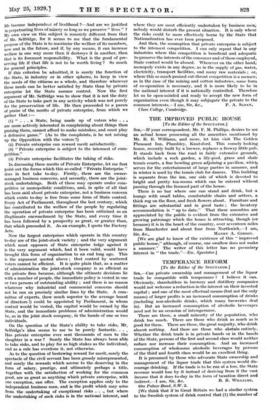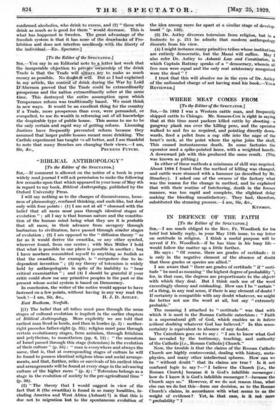TEMPERANCE REFORM [To the Editor of the SPECTATOR.] SIR,—Can private
ownership and management of the liquor trade be compatible with temperance f I believe it can. Obviously, shareholders in brewery and distillery companies would not welcome a reduction in the interest on their invested capital ; and one of the most effectual means (but not the only means) of larger profits is an increased consumption of drinks (including non-alcoholic drinks, which many breweries deal in). But an increased consumption of alcoholic beverages need not be an occasion of intemperance.
There are those, a small minority of the population, who drink too much. There are those who drink as much as is good for them. There are those, the great majority, who drink almost nothing. And there are those who abstain entirely. Whether the drink trade is in private hands or in the hands of the State, persons of the first and second class would neither reduce nor increase their consumption. And an increased consumption of wholesome alcoholic beverages by persons of the third and fourth class would be an excellent thing.
It is presumed by those who advocate State ownership and management of the liquor trade that this system would dis- courage drinking. If the trade is to be run at a loss, the State revenue would lose by it instead of deriving from it the vast income that it does to-day in the form of taxation direct and
[We think that if in Great Britain we had a similar system to the Swedish system of drink control that (1) the number of confirmed alcoholics, who drink to excess, and (2) " those who drink as much as is good for them " would decrease. This is what has happened in Sweden. The great advantage of the Swedish system is that it, has none of the drawbacks of Pro- hibition and does not interfere needlessty with the liberty of the individual.—En. Spectator.]









































 Previous page
Previous page